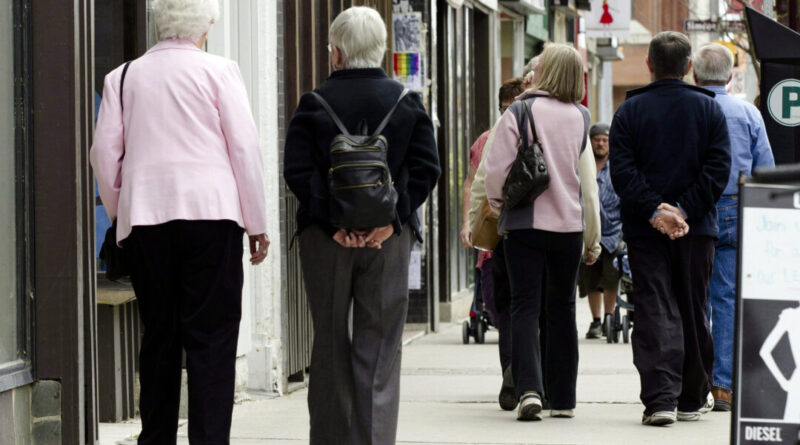Survey Finds Canadians Report Feeling Older Than Their Actual Age
According to a recent survey by Angus Reid, Canadians are more likely to feel physically and mentally older than their actual age compared to nine years ago.
Twenty-five percent of Canadians feel physically older than their age, while 21 percent feel mentally older. This is slightly higher than the results from a similar survey conducted in 2015, where 23 percent felt physically older and 19 percent felt mentally older.
Conversely, 31 percent feel physically younger and 47 percent feel mentally younger than their age, though these numbers have decreased from 2015 when 38 percent felt physically younger and 53 percent felt mentally younger.
“It had been nearly a decade since [Angus Reid] last asked Canadians to assess their relative mental and physical age,” Angus Reid mentioned in its report.
In recent times, Canadians have faced challenges such as wars, a pandemic, and economic instability caused by high inflation.
Who Feels Older?
The survey revealed that Canadians feeling older than their actual age tend to be those under the age of 55. Men in the 35–54 age group feel more mentally older, while women aged 18–34 feel physically older.
The 18 to 34 and 35 to 54 age groups are more likely to have higher dissatisfaction levels with their stress compared to 2015.
When comparing provinces, Quebec has the highest percentage of residents feeling younger physically (34 percent) and mentally (51 percent), followed by B.C. at 36 percent and 48 percent, respectively.
Conversely, Saskatchewan has the fewest residents feeling younger physically (18 percent) and mentally (31 percent).
Angus Reid stated, “Regardless of their perceived age, a majority of Canadians (57%) wish to live to be 90 or older. Only a quarter (26%) find the idea of living into their 100s appealing.”
Canadians view their 20s and 30s as the prime stages of life, with 50 percent preferring these age ranges. Thirteen percent chose their 40s as the best decade, while childhood received 8 percent. The teen years and 50s each garnered 7 percent, followed by 3 percent for the 60s and 1 percent for the 70s. No votes were recorded for ages 80 and older.





